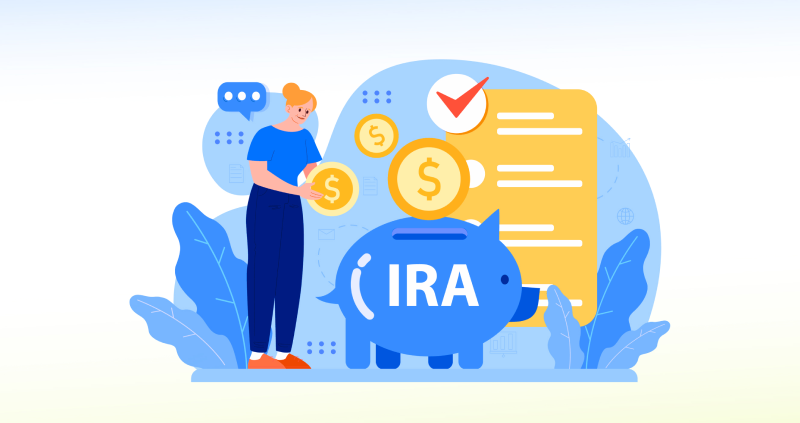Estate planning for women
Taking control of your future and financial well-being
Home > Retirement > Estate Planning for Women
Women tend to outlive men, making estate planning crucial for financial security and long-term care.
Unique challenges, like caregiving responsibilities and income gaps, make it important for women to plan ahead.
A well-structured estate plan empowers women to protect their assets, ensure their wishes are honored, and provide for their families.

Understanding estate planning
An estate plan is the process of preparing and protecting your estate — which is made up of all of your assets, including all real estate properties and land, financial securities, stocks, pensions, debt, art and other collectibles, and any other valuable possessions — in the event that you pass away or are unable to manage it yourself. This planning includes allocating your assets to heirs, passing on guardianship of minor children or pets, settling outstanding debt, and even delegating someone to make important medical decisions for you, in the event that you are incapable of doing so yourself.
Estate planning can help to smoothly carry out your wishes after you pass, and avoid complicated legal actions and costs for your loved ones. It may also help reduce inheritance taxes and fees, allowing your family to inherit more and preserve your generational wealth.
How is women’s estate planning different?
You may be wondering — how is estate planning any different from women’s estate planning? The reality is, like many things in life, estate planning can indeed be different for women.
Estate planning for women can differ due to unique financial and life circumstances women may experience. Some key differences include:
Longer life expectancy
Women tend to outlive men, meaning they may need to plan for extended healthcare costs, long-term care, and sustained income in retirement. If a woman outlives her spouse, she would become responsible for managing household finances alone — where oftentimes, women are left out of important, and relevant, financial decision-making. If a woman is married and outlives her spouse, it is also important to consider if they have enough life insurance to cover expenses, or how much to save for retirement.
Living longer also means women may need more resources, even though they often have less time to work and accumulate said resources. Planning ahead of time may help gain a better overview of how much to save and how to achieve that goal. Therefore, not only may women’s estate planning differ from that of men, but also things like retirement planning for women, maintaining overall financial literacy, or financial longevity may also be different for women.
Caregiving responsibilities
Oftentimes, women end up taking on caregiving roles for children, aging parents, or spouses. Sometimes even giving up their fixed income by taking a career break to do so. If they were to pass away, this would leave the dependents that rely on them without a guardian, and in a tough financial situation.
Having an estate plan can help ensure financial security for themselves and those they are caring for, and ensure they can choose a new caregiver for their dependents rather than have the court choose for them. It may also be important to consider looking at your family’s financial plan or your wealth management.
Income and wealth gaps
Despite oftentimes being the main source of income or even secondary source of income for their families, women still face gender pay gaps, making wealth building more difficult than for men, and in turn, lead to a bigger gender wealth gap. If a woman has to take a career break to become a full-time caregiver — something that tends to be more common for women than for men — this can also affect her overall wealth, or even retirement savings.
Healthcare and end-of-life decisions
Since women tend to live longer, it is important to consider having a solid plan for medical directives and powers of attorney. This can ensure their needs and demands are met, instead of leaving their health in the hands of a complete stranger — which can be crucial for single, widowed, or child-free women.
While the financial challenges women face can be discouraging, it is important that women are aware of them, so they can make informed decisions that allow them to take control of their financial lives — alongside their future, their assets, and their families’ future — and ensure their end-of-life wishes and needs are met.
Women and estate planning: Why do I need an estate plan?
Regardless of economic status, most people have personal possessions. And you probably have thoughts on where or who you want those things to go to after you pass — regardless of if you have heirs or not. Estate planning can help you ensure that you are in control of how your assets and wealth get passed down.
Estate planning also doesn’t only concern your passing. There are plenty of unexpected life events that can happen where having an estate plan can help to protect you and your loved ones — which is another reason why estate planning for women can be extremely important. Being prepared in advance can avoid you or your family and loved ones having to make important decisions during difficult times. Therefore, estate planning may also help you and your family in the event of an illness or accident that can leave you incapacitated or unable to care for yourself.
If you are single or divorced, estate planning may also help you during trying times. Having an estate plan can help avoid putting a stranger in charge of your care if you fall ill, as it allows you to list healthcare wishes while you are able to do so. Having a designated power of attorney can be crucial if you become incapacitated. You can also decide what or who your inheritance will go to, and who will manage your money in the event that you are unable to do so yourself. Estate planning is therefore not only for those who are married and have children, but also important for divorced, widowed, or single women, as it allows you to keep control of important health decisions, assets, and finances.
How to get started with estate planning
Estate planning is a lengthy process. It is not something you get done in a day, and it also needs to be regularly reviewed.
To get started, you may want to consider the following:
Make an inventory: Make a list of all of your assets — including real estate, vehicles, art or other valuable collectibles, bank accounts, savings or high-yield savings accounts, certificates of deposit, insurances, stocks and other investments, retirement accounts, pets, and any other important things that belong to you. You could even start appointing beneficiaries if you already have them in mind.
Write a will: A will is a legal document where you outline how you would like your assets to be distributed when you pass away. Aside from writing a will, you may also want to consider a trust, as this can involve a smoother and less costly process for your beneficiary to receive their assets and can help you to avoid probate.
Plan for your family: If you are leaving behind minor children or pets, you may want to appoint a guardian for them. Ask yourself if you are leaving enough funds to financially support your family.
Review beneficiaries: Make sure you have revised beneficiary designations for any financial accounts and relevant assets. If you have no children, ensure you still have beneficiaries listed, or any charity donations you would like to make. If you are divorced, ensure you have updated your beneficiaries to avoid your assets rolling over to your ex-spouse and their kids.
Appoint your directives: Directives are legal documents outlining your wishes for important decisions, including managing finances and medical care, in the event that you become incapacitated or unable to make your own decisions. It would be especially important to consider a financial and/or medical power of attorney — something that could be important for single or child-free women.
Review estate tax laws: Although estate planning follows a similar structure overall, it is important to check state-specific laws for estate taxes, or even wills, to ensure you don’t face unexpected costs.
While these are some of the basics to get you started, you can check out our guide to estate planning or estate planning mistakes to avoid for more detailed approaches to planning your estate. If you would like even more detailed guidance, you may want to consider an estate attorney, financial advisors for women, or other services.
Updating your estate plan
Once you have a well-rounded estate plan, you are not done just yet. While your life and financial situation are constantly evolving, your estate plan should too, to keep up with your changing needs. It is important to review and update your estate plan from time to time to ensure your beneficiaries are up-to-date and assets are accurately listed. This can also be important if you have experienced a major life event, like getting married, divorced, becoming widowed, or having, losing, or adopting a child. Having an updated estate plan could avoid lengthy court rulings for your beneficiaries and could quite literally be life-saving in the event that you become ill.
Bottom line
Estate planning ensures that your assets, medical wishes, and loved ones are protected according to your wishes. Women, in particular, face unique financial challenges like longer life expectancies, caregiving responsibilities, and income gaps, making women’s estate planning even more crucial. Regardless of your financial status or wealth, having a well-structured estate plan helps safeguard your financial future and provide peace of mind for you and your family.
Thinking about estate planning, but unsure if you have enough assets? Women have the potential to build and protect their wealth. No matter where you are in your financial journey, the Raisin marketplace can help you maximize your savings and grow your financial future. Explore our financial products and take the first step toward financial security today.
The above article is intended to provide generalized financial information designed to educate a broad segment of the public; it does not give personalized tax, investment, legal, or other business and professional advice. Before taking any action, you should always seek the assistance of a professional who knows your particular situation for advice on taxes, your investments, the law, or any other business and professional matters that affect you and/or your business.


